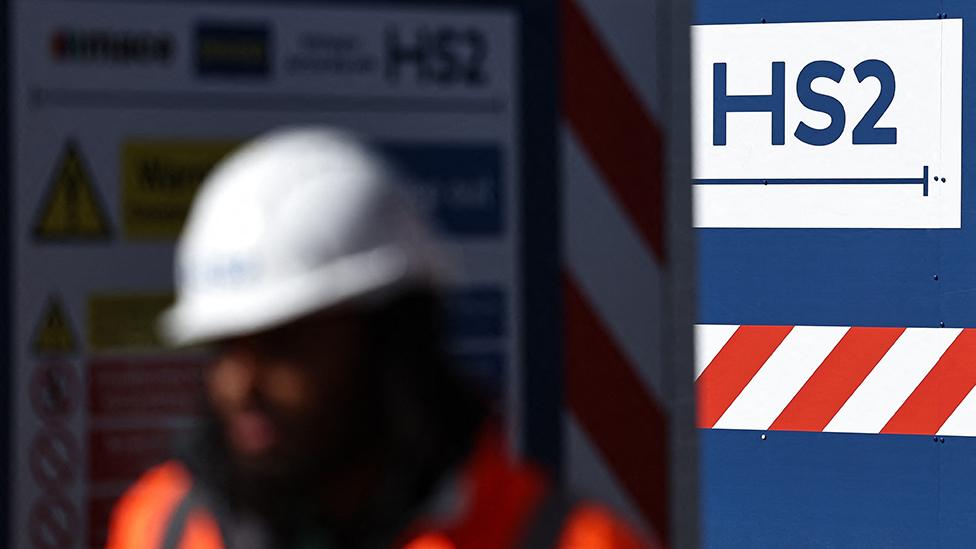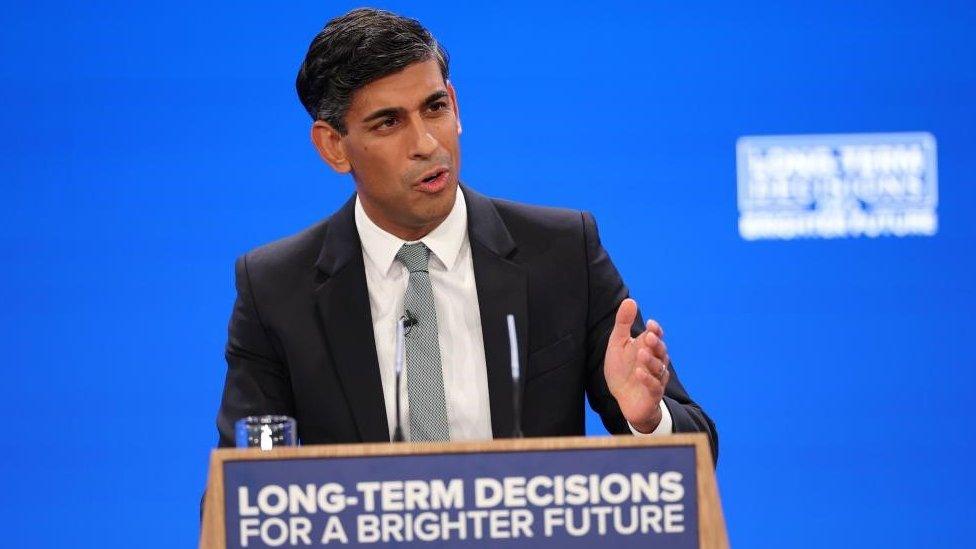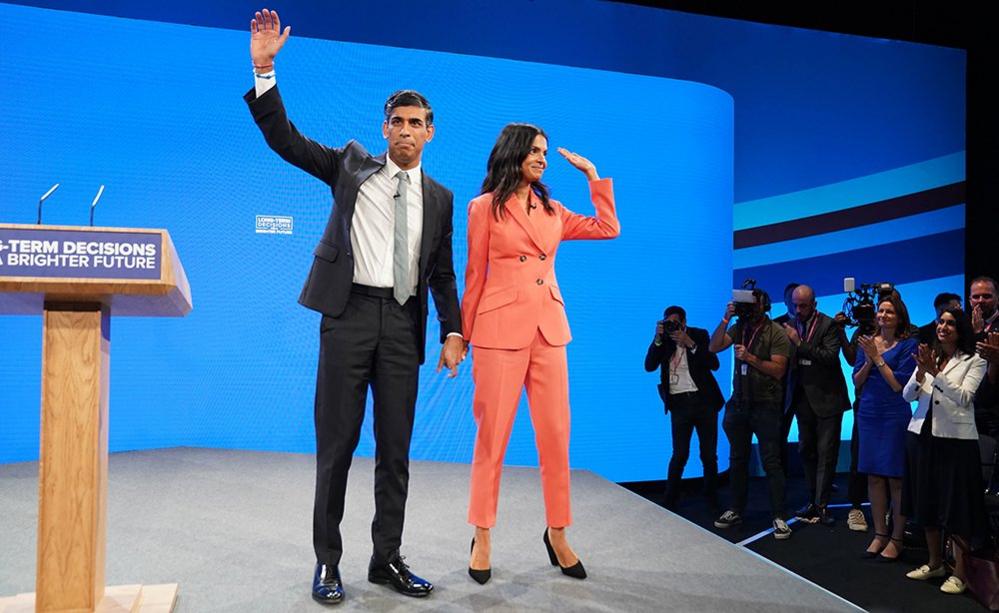Tory conference: Six takeaways from Rishi Sunak's speech
- Published
Rishi Sunak: I am cancelling the rest of the HS2 project
Here's what we learned from Rishi Sunak's first speech to the Conservative conference as prime minister.
1. He owned HS2 cancellation
After weeks in which he kept insisting no decision had been made, Rishi Sunak finally announced what everyone suspected - the northern leg of the HS2 project is being cancelled.
Axing the biggest infrastructure project in Europe is a major step and the prime minister did his best to own it. He promised to spend all of the money saved on local transport improvements, trams, buses rail, roads - many, many roads.
Questions remain about how all of this will work in practice - and the backlash against the cancellation of the high speed line to Manchester is already fierce.
But the ball is now in the opposition's court - will Labour promise to reverse the HS2 decision and cancel all of those local transport projects?

2. He wants to be seen as Thatcher's true heir
Perhaps the most remarkable thing about Mr Sunak's speech was his claim that for the past 30 years, politics has failed. That encompasses every prime minister since Margaret Thatcher, in other words, including five Conservative ones.
"We've had 30 years of a political system which incentivises the easy decision, not the right one," he told the packed hall.
"Thirty years of vested interests standing in the way of change. Thirty years of rhetorical ambition which achieves little more than a short-term headline."
Mr Sunak is not the first Tory leader to try to cast himself as Thatcher's heir. But he may be the first to attempt to disown his immediate predecessors as party leader.
Indeed, the only previous Tory leaders who got a nod of approval in his speech - apart from Thatcher - were Disraeli, Churchill... and Iain Duncan Smith.
3. Did he mention change?

Indeed he did - 30 times in fact. "Our mission is to fundamentally change our country," he told the party faithful.
"If this country is to change, then it can only be us who will deliver it," he added.
"Change only endures if we bring people with us."
And so on. He badly wants to be seen as the "change candidate" at next year's general election - not an easy task after 13 years of Conservative rule.
4. Education, education, education
Education is a major theme for Mr Sunak - and he used his conference speech to announce a string of new policies aimed at boosting the prospects of 16 to 19-year-olds.
Merging A-levels with T-levels into a new Advanced British Standard qualification - which will only be available in England - is another example of tearing up a policy - T-levels - that was brought in by the Conservative government.
But overall, this was a major incursion into traditional Labour territory, not least the promise of a £30,000 cash bonus for teachers.
5. Banning smoking could be his legacy
The PM's plan to end smoking for the next generation by raising the age at which cigarettes can be purchased every year will be seen as genuinely radical. New Zealand is the only other country in the world to attempt this.
It is clearly a subject the PM feels strongly about. It will be attacked by the libertarian right as nanny statism and there will be questions about how it will be enforced in practice, but how many MPs will oppose it when they are take part in the free vote Mr Sunak has promised on it?
6. His wife is seen as a political asset

The surprise appearance on stage of Mr Sunak's wife Akshata Murty - who has kept a pretty low profile to this point - went down very well in the hall.
She was able to deliver a message about the PM's background and values that meant more than if he had spoken about them himself.
It was a personal and at times touching five minute curtain raiser for the main event. Will we be seeing more of Ms Murty when the election campaign gets under way?